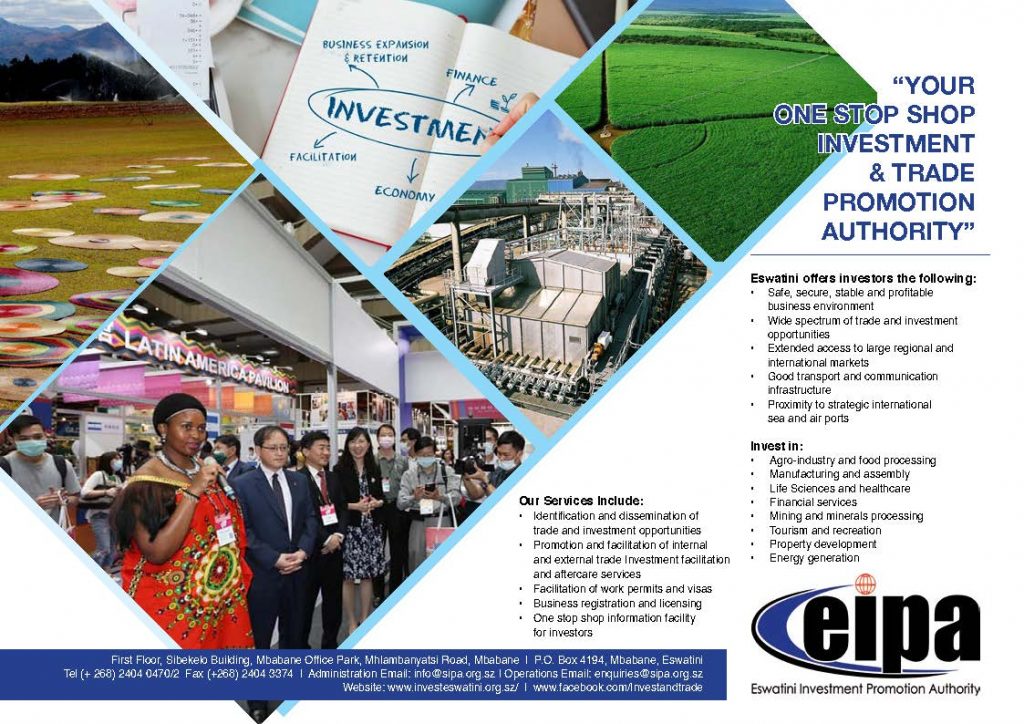Cabinet has issued a clear message of the Administration’s resolve to maintain its momentum towards realising the country’s economic turnaround. Local and international news media were informed that - led by His Majesty King Mswati III and Her Majesty the Queen Mother - Eswatini had strengthened and expanded its bilateral relations with stakeholders and major trade partners such as South Africa, India and ROC-Taiwan, and additionally signed a cooperation agreement with Singapore. Furthermore, government renewed its commitment to removing all barriers to the attraction of investment, as well as ensuring policy certainty and simplifying the business environment, tasks that will fall to a Delivery Unit and which are aimed at increasing the chances of all government and investment projects succeeding, and thereby enabling private sector growth.
Finance Minister Neal Rijkenberg subsequently issued a reassurance that government continues endeavouring to create more jobs and attract new Foreign Direct Investment (FDI), this with the intention to catalyse industrialisation for sustainable economic growth and poverty alleviation. He said that meaningful growth will be achieved by enabling the private sector to lead and do what it does best, namely growing the kingdom’s economy and thereby generating meaningful, lasting employment opportunities. Further on the topic of Eswatini’s investment climate, Rijkenberg described the Strategic Roadmap to 2022 as government’s commitment “to catapult the country into a growth path that will channel every citizen into productive economic activities”.
Reliable and affordable electricity and internet remain key priorities for government in order to stimulate private sector growth and productivity, the Minister declared, to which end government intends to expedite national plans for promoting the local production of electricity and to ensure that end-users are the primary beneficiaries of Eswatini’s burgeoning cyber-scape. He said that government will continue to promulgate pro-business policies in an effort to bolster the operating environment, which in turn will enhance the potential of the private sector to contribute towards economic growth and employment creation. In conclusion, Minister Rijkenberg summed up by stating that a vibrant private sector will lead to improved food security, access to affordable internet and communication services, a thriving renewable-energy industry, increased tourism and full utilisation of the kingdom’s preferential trade agreements.
ADVERTISERS
EIPA

